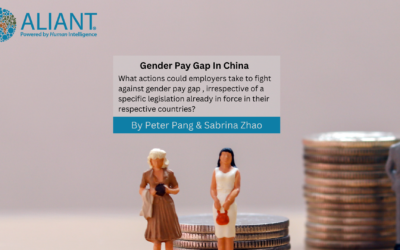A work environment in which everyone’s dignity is not respected and in which interpersonal relationships are not based on mutual fairness is neither healthy nor safe. As a consequence, employers can be held liable for the failure to implement health and safety measures to protect their employees.
Towards the end of last year the topic of sexual harassment at work inflamed the public debates in Italy due to the case where the alleged harasser was the former partner of our prime minister. In particular, he is a journalist of whom several videos and audios were published while committing (alleged?) sexual harassment at work vis-à-vis some of his female colleagues.
The occasion is valuable for some considerations on the topic from the perspective of a labor lawyer aimed at helping employers to manage employment relationships.
In that specific case, we only know that after one week of “agreed suspension” from work the employee continues his job in the editorial board of the TV program that he was previously hosting. Nothing leaked with respect to whether or not the employer initiated disciplinary proceedings against him.
Usually, an employer should initiate a disciplinary procedure as soon as it becomes aware of possible misconduct engaged in by one of its employees. Such procedure requires the following strict and timely steps:
- the drafting and sending of a detailed letter of complaint that lists in detail the charges that are brought against the employee;
- the contextual invitation to the employee to provide his or her justifications for the objections made within five days, including orally and/or with the support of a union representative;
- once the time limit for justifications has expired and any necessary in-depth investigations have been carried out, within a subsequent time limit, the disciplinary sanction decided upon as a result of the justifications received must be formally communicated to the employee. In the absence of such timely communication, the alleged misconduct shall be deemed tolerated by the company, which may no longer proceed to impose a sanction related to that specific incident.
Just to clarify, for the non-expert: initiating disciplinary proceedings against an employee does not necessarily imply a subsequent infliction of a disciplinary sanction (i.e., from a reprimand, to a fine, via to dismissal). It is well possible that at the outcome of the procedure and, in particular, in light of the justifications made by the employee, the employer decides either not to proceed with any disciplinary sanction or to impose a so-called conservative sanction (not dismissal, to be clear).
In the case at hand, the decision not to start a disciplinary proceeding can be viewed as tolerance of the misconducts charged against the journalist, in case they were proven to be true, exposing the employer to claims to be brought by the alleged victims. It is not at all clear if the employer adequately investigated whether or not the journalist’s female colleagues liked the gestures and phrases – assuming they are confirmed – to which they appear to be victims or witnesses.
While the public debate focused exclusively on whether or not the alleged harasser’s intentions were serious, it is the “victim’s” point of view to be diriment. In fact, what most defines sexual harassment is the fact that the victim does not wish to be exposed to those behaviours with sexual connotations, whether they are expressed in physical, verbal or non-verbal form.
The Italian Equal Opportunity Code (see Article 26 of Legislative Decree No. 198 of 2006) emphasizes that it is the employer’s responsibility to put in place the most appropriate initiatives, of an informative and training nature, in order to prevent the phenomenon of sexual harassment in the workplace. This falls within the more general employer’s obligation to protect the physical and moral integrity of its employees, provided by Article 2087 of the Italian Civil Code.
It follows that, the employer who fails to promptly initiate disciplinary proceedings against the alleged harasser, remaining culpably inactive, may be held liable for damages to the physical and moral integrity suffered by the victim.
The recommendation to each employer is to have the sensitivity and the foresight – given the possible responsibilities – to seriously address the issue of sexual harassment at work, especially in terms of prevention.
It seems clear that the mere publication of a corporate code of ethics, does not help to raise adequate awareness on the sexual harassment topic. Since we need a cultural change, a first step employers should take is the organisation of effective and practical trainings at company level along with a “zero tolerance” policy.
Notwithstanding Italy ratified the International Labor Organization Convention no. 190/2021 on the Elimination of Violence and Harassment in the World of Work (Law No. 4 of 2021) and included specific rules to protect the victims in its Equal Opportunities Code, the issue of sexual harassment at the workplace, is unfortunately still too widespread.




